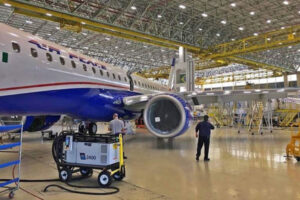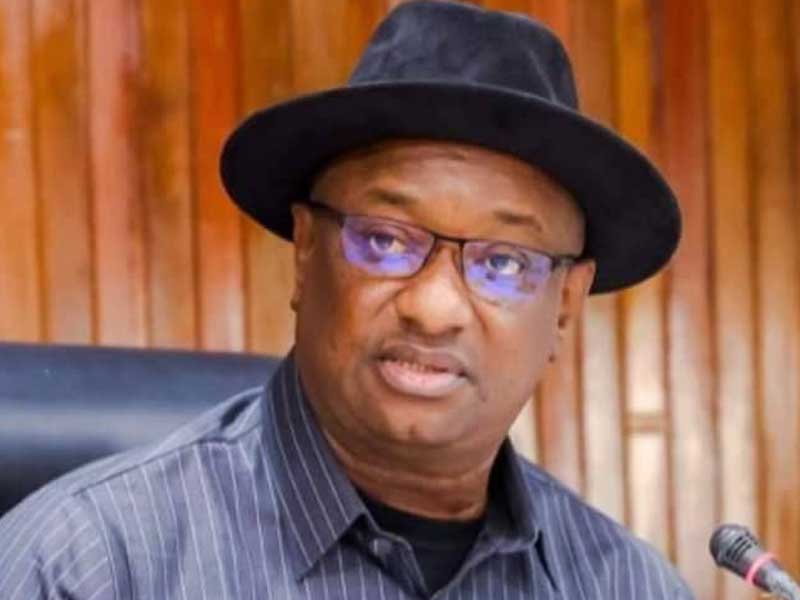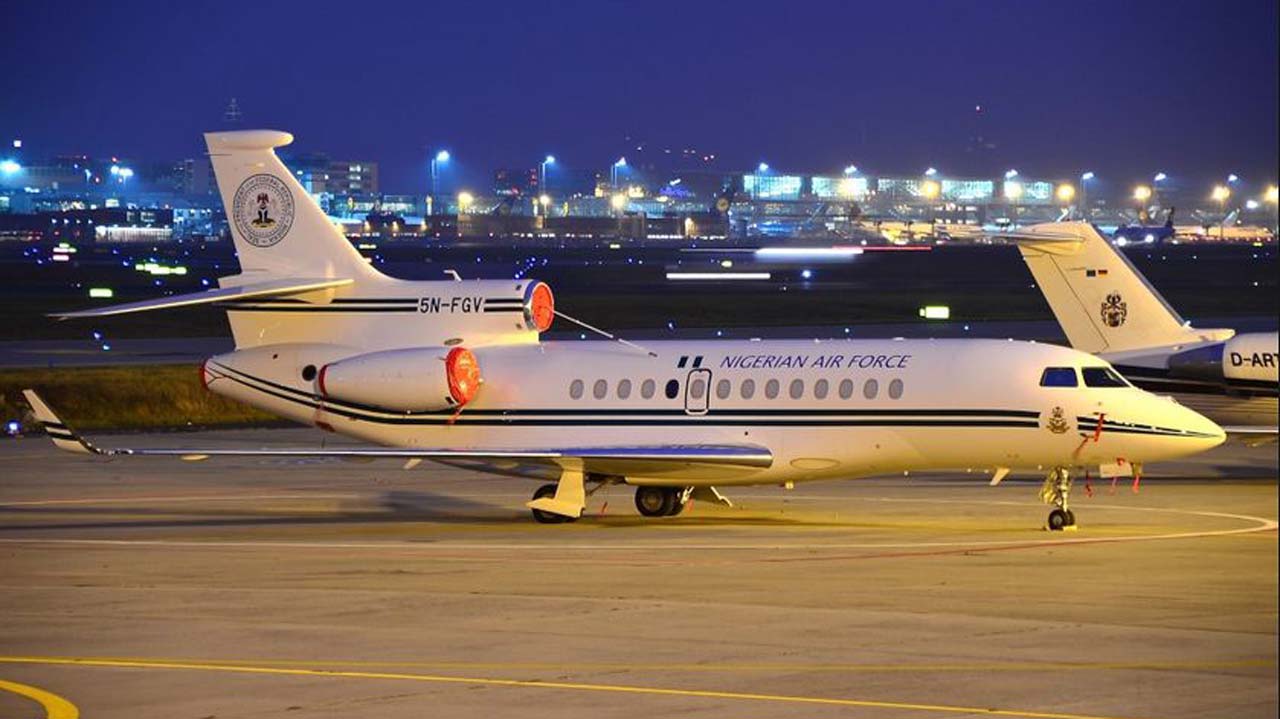
Aviation industry experts are optimistic that the Fly Nigeria Act will increase the number of people who fly with Nigerian carriers on international routes and also significantly reduce the amount of money repatriated from Nigeria by foreign airlines, should the federal government fully embrace it.
Fly Nigeria Act is a law similar to what is adopted by most countries whereby anyone travelling on government expense will use their own carriers or their partners. It is a policy adopted to protect local carriers, build strong aviation sector, create jobs, prevent the dominance of foreign airlines on their international routes and boost tax revenues from the sector.
Many industry observers said if adopted, it would bring new vigour into the aviation industry because it will make Nigerian airlines that meet the given standard to operate international destinations profitable and this will bring more investment into the sector.
The CEO of Cleanserve Energy, an oil marketing company, and former Managing Director of Arik Air, Chris Ndulue, told THISDAY that Nigerian airlines cannot grow without intentional support from the federal government, just as other countries do for their airlines, insisting that one of the key ways to support Nigerian airlines is to pass the Fly Nigeria Act into law.
Ndulue commended the Minister of Aviation and Aerospace Development, Festus Keyamo, saying that since the minister was appointed, he has been making significant efforts to reposition Nigerian carriers in many ways, including the efforts he is making to ensure that Nigerian carriers could lease aircraft (dry lease) at minimum cost and also have access to international financiers.
He particularly commended the minister for initiating the push for Fly Nigeria Act to be enacted into law, which he said would be succour that will lead to viability and profitability of Nigerian carriers.
“The minister is doing very well. He is one of the best that have been appointed to manage the industry. I commend him for bringing to the fore the Fly Nigeria Act. He has shown commitment by promising that he would push to see it passed by the National Assembly. I expect National Assembly to pass it into law. The proposal needs no debate because it is the key for the resuscitation of the airline sub-sector.
“Just imagine government providing money for you to travel and you use that money to buy ticket from foreign airlines. Automatically that money leaves the country. In fact, instead of debating it, I think the President should give executive order on that because it is very, very important for the country. It does not make sense at all using tax payers’ money tickets from foreign airlines. This is the reason why the United States made it a law that if you are travelling at the expense of government and its agencies, you must patronize American airlines.
“When you do that you retain the money that otherwise would have been repatriated; you increase the liquidity of Nigerian airlines and the airlines will in turn create more jobs for Nigerians, boost their operation and remain in business; all these are a huge plus for Nigeria as a country,” Ndulue said.
He dismissed the argument that Nigerian carriers are not as good as foreign airlines, saying that the foreign airlines did not become best overnight but with the support of their host countries they grew. According to him, Fly Nigeria Act will help Nigerian airlines do better and before an airline will benefit from it, it must meet certain operational standards, including the number of aircraft in its flight, the minimum international destinations it must operate and certain standard of service it must provide to its customers.
It is believed that ‘Fly Nigeria Act’ will spur foreign airlines to establish interline, code-share and other partnerships with Nigerian airlines to enable a traveller fly beyond point to point, leveraging on the airlines partners to his final destination.
Industry experts believe that it will also attract investment into the aviation sector both foreign and local, as the Fly Nigeria Act will make a turnaround in the growth of domestic airlines and development of the aviation industry in Nigeria because majority of air travellers in Nigeria are government officials who travel on public expense.
Early last year, the former President of the Nigerian Bar Association (NBA), Dr. Olisa Agbakoba, had advised the Minister of Aviation and Aerospace Development to enact the Fly Nigeria Act to strengthen the aviation industry.
Agbakoba who commended the minister, said Fly Nigeria Act would reposition Nigerian carriers and further explained that the legislation of the Act would ensure that all public funds that would be spent on air travel for government officials or government consultants would be on a Nigerian carrier, adding that it will immediately give Nigerian airlines that operate international destinations, more passengers.
He noted that such an Act would strengthen the aviation space, noting that there have been too many failures in the aviation sector and commended the insertion of a corporate governance code into the Nigerian Civil Aviation Authority (NCAA) Act to strengthen the Act. According to him, that is akin to what happens in the Central Bank of Nigeria (CBN).
The Executive Secretary of Aviation Round Table (ART), Olu Fidel Ohunayo, explained that having considered the inability of Nigeria’s carriers to command presence on the international routes, the time to enact the ‘Fly Nigeria Act’ into law is now.
“The Act will protect and give market share to Nigerian airlines and most importantly public funds will not be filtered and ferried away by foreign airlines but ploughed back into the country by Nigerian airlines. This will generate more employment and revenue in the industry, access to capital, foreign investment, career projection for core professionals and most importantly ignite a dash for code share and alliance with Nigerian carriers,” Ohunayo said.

He noted that presently the USA has such an Act – LAW 49 US code 4118 while some other countries have it as executive directive (real & subtle). The US act basically states that US carriers shall be used for all commercial foreign air travel of employees/property, dependants, consultants, contractors and grantees when air travel is being funded by the government.
“General provisions of the Act require that US flag carriers be used regardless of added cost or travel time implications to the traveller. Interestingly, it should also be noted that, according to the US State Department (DOT) the Fly America Act applies equally to non-US nationals and non-US companies or their representatives both within the USA and ex-territorially, regardless of enforcement difficulties or possible infringements of international law and personal liberty that this could represent,” Ohunayo explained.
According to him, the Act provides balance against some of the existing, largely obsolescent and, in many cases, inequitable bilateral US/non-US Air Transport Agreements.
“The Act also accepts Code Sharing (Airline Alliances) of flights by US and non-US flag carriers utilising the equipment of the non-US flag carrier. If a US flag air carrier has an arrangement to provide passenger service in international air transportation on the aircraft of a non-US air carrier under a “code-share” arrangement with a non-US air carrier, Federal regulations have been revised to indicate that the ticket (or document) must identify the US Flag air carrier’s two letter designator code and flight number. In a nutshell that ticket must be purchased from the US member airline in that alliance,” Ohunayo further said.






